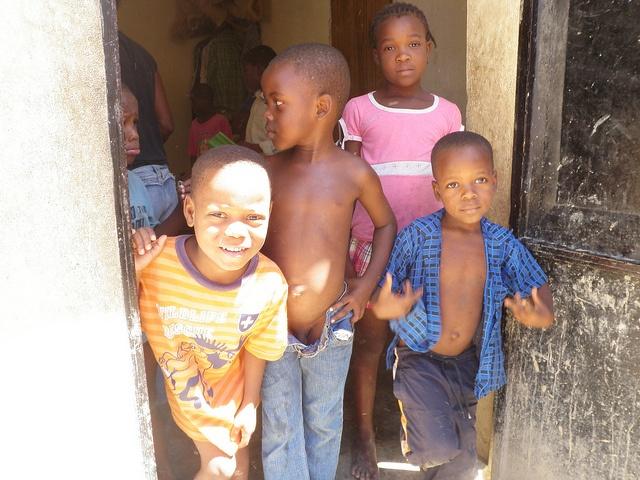
Haiti is the poorest country in the western hemisphere and one of the poorest in the world. It had a per-capita GDP of only $846 in 2014. It’s also a country that witnessed tragedy on a large scale when an earthquake struck in its capital, Port-au-Prince, in 2010 -- killing over 300,000, according to government estimates. One company is now looking to help Haitians better their lives.
That company is Thread, a Certified B Corporation that transforms plastic bottles collected by Haitian and Honduran people into fabric. Thread recently announced its new Clinton Global Initiative (CGI) Commitment to Action to address the problem of child labor in global supply chains. Through partnerships with Timberland, HP, Team Tassy and ACOP (the Plastic Collectors Association), Thread’s commitment will help improve the lives of about 300 Haitians, 200 of whom are children. Through the partnerships, programs will provide educational opportunities, job training and medical care for the Haitian communities of Molea, Menelas and Port-au-Prince.
Thread expects to invest $300,000 in monetary and in-kind donations by December 2019 through partnerships. The money will be used to provide detailed field assessment, wellness exams, healthcare services and building a career support network in Haiti.
Timberland and HP plan to source materials from the collection system in Haiti, in addition to joining the Commitment to Action. Timberland will launch a collection of bags and shoes made with Thread Ground to Good fabric in spring 2017. HP will use the materials to manufacture inkjet cartridges.
“The very bottom of the supply chain is where people are the most vulnerable,” Ian Rosenberger, founder and CEO of Thread, said in a statement. “No longer is it okay to ignore the issue because it’s difficult to talk about. We’re proud to be working with great partners like Timberland and HP to find a solution in Haiti that can change our global understanding of dignified work.”For the “first few years” Thread worked in Haiti, child labor was not a problem, Kelsey Halling, director of impact for Thread, wrote in a blog post last week. Thread “had a small and close-knit enough collection network” that prevented child labor from entering its supply chain. The company also has a Code of Conduct and Child Labor Avoidance Policy. But Haiti is an extremely poor country, so “these policies don’t always hold up,” Halling wrote. Last year, Thread expanded its supply chain in Haiti, which made it imperative to address child labor and began to partner with ACOP. In April, Thread approached the CGI about making a Commitment to Action -- which requires specific timelines, measurable goals and metrics, and annual progress reports.
Beyond Thread's supply chain, child labor is a big problem in Haiti. The country has a restavèk system which the nonprofit organization Free the Slaves describes as a “system in which Haitian children from impoverished homes are sent by parents to live with other families and work for them as domestic servants.” The children work as many as 14 hours a day for no pay. An estimated 150,000 to 300,000 children are part of the restavèk system.
The term restavèk in Haitian Creole means “to stay with.” It is now “one of the worst names to be called in Haitian society,” according to the International Labor Organization (ILO). The system began as a way to send children to “live with wealthier relatives in the city” so they could have a better life. But the system deteriorated and is now a “form of domestic trafficking and modern day slavery,” the ILO says.
Through its Commitment to Action, Thread is highlighting a major problem in Haiti. And through its partnerships, the company is working with families to give children access to education. That is something that can’t come soon enough for Haitian children.
Image credit: Flickr/International Disaster Volunteers

Gina-Marie is a freelance writer and journalist armed with a degree in journalism, and a passion for social justice, including the environment and sustainability. She writes for various websites, and has made the 75+ Environmentalists to Follow list by Mashable.com.














